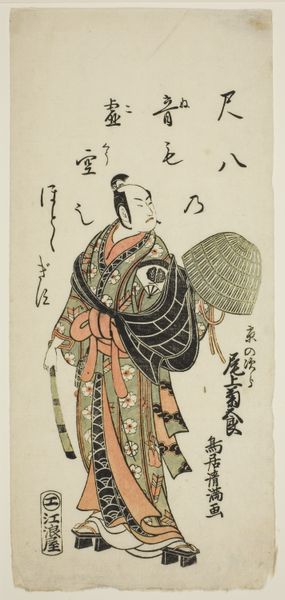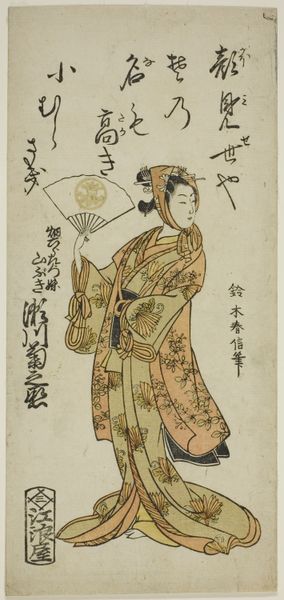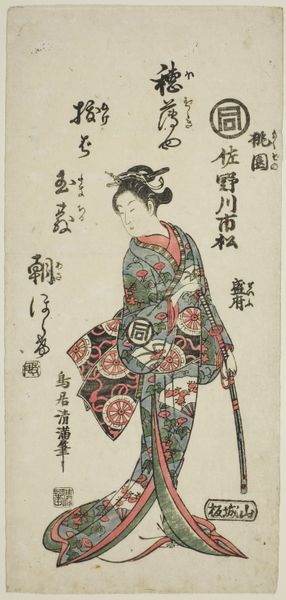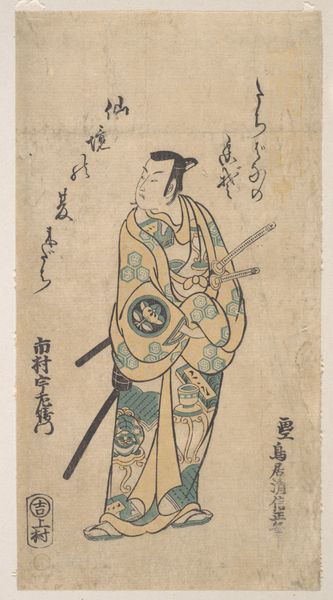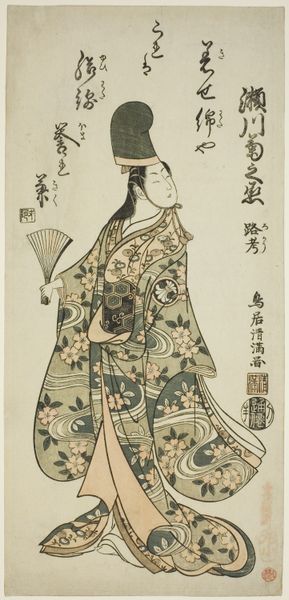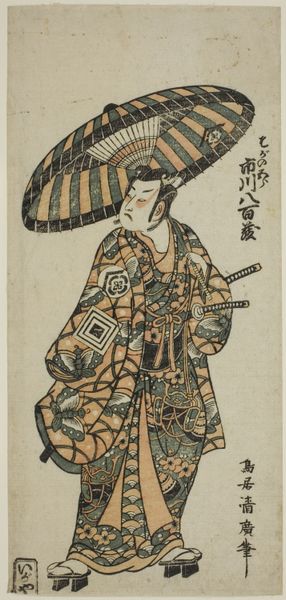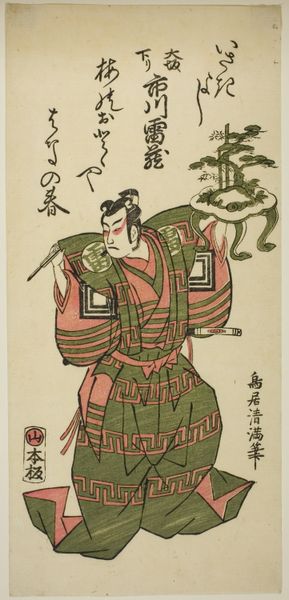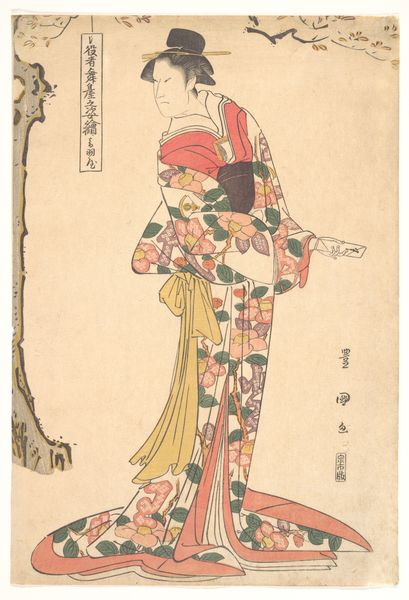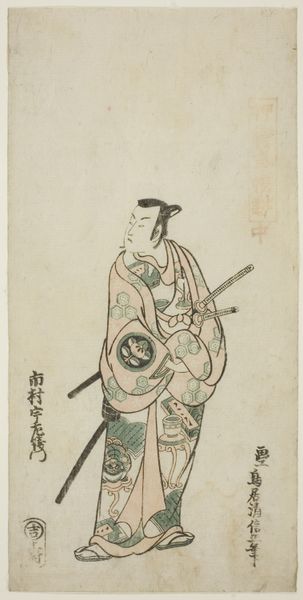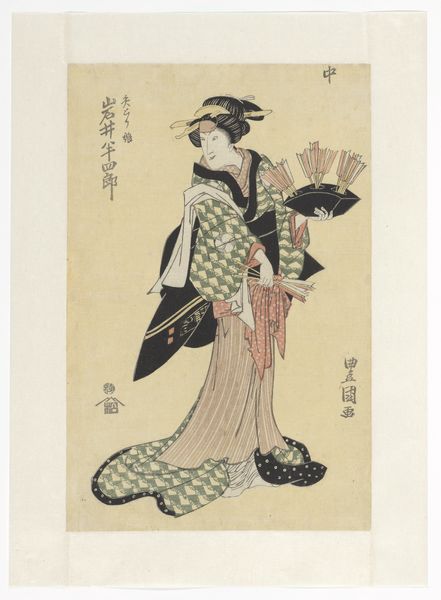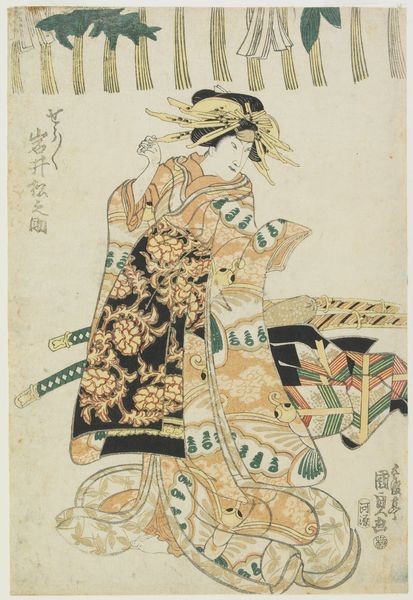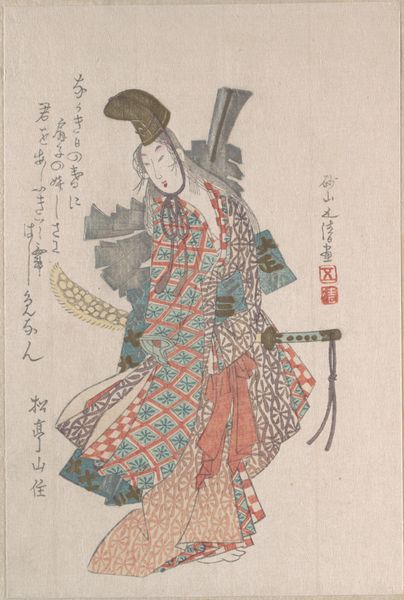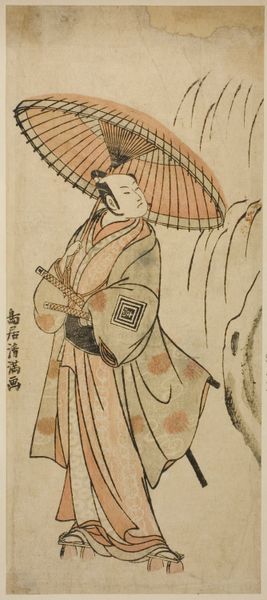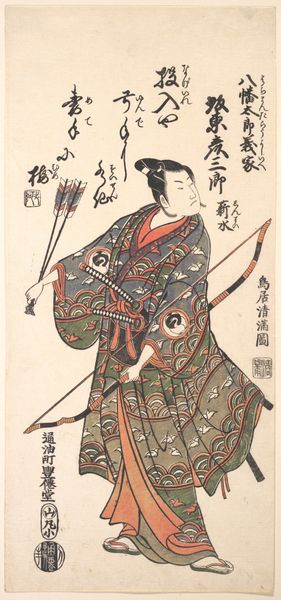
The Actor Ichimura Uzaemon IX as shirabyoshi dancer Makomo no Mae in the joruri "Iru ni Makase Yumiharizuki," performed at the Ichimura Theater in the eleventh month, 1767 1767
0:00
0:00
print, woodblock-print
#
portrait
# print
#
asian-art
#
ukiyo-e
#
figuration
#
woodblock-print
Dimensions: 12 1/4 × 5 1/2 in.
Copyright: Public Domain
This woodblock print by Kitao Shigemasa captures Ichimura Uzaemon IX, a male actor, in the role of Makomo no Mae, a female shirabyoshi dancer, during a 1767 performance. In Edo-period Japan, Kabuki theater was a vibrant space for exploring gender roles and societal norms. Male actors known as "onnagata" specialized in portraying female characters, embodying an idealized femininity that captivated audiences. Uzaemon's performance as Makomo no Mae would have been a study in transformation, as he skillfully adopted the mannerisms, gestures, and emotions associated with female identity. This print not only immortalizes a fleeting theatrical moment, but also reflects the complex interplay between gender, performance, and representation in Japanese culture. How does this image challenge or reinforce traditional notions of gender, and what does it reveal about the cultural values and beliefs of its time?
Comments
No comments
Be the first to comment and join the conversation on the ultimate creative platform.
